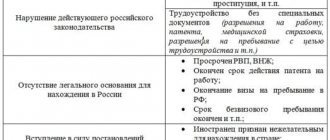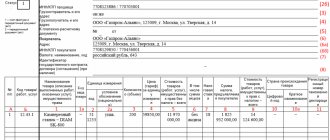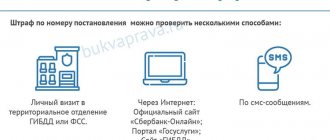Administrative is a restriction of his freedom for a period of up to 3-48 hours to ensure the consideration of a case or the execution of a decision made on it. Detention refers to security measures applied in the framework of proceedings in cases of administrative offenses. The procedure for administrative detention is regulated by Articles 27.3-27.6 of the Code of Administrative Offenses of the Russian Federation.
- What is administrative detention
- Grounds for detention
- Detention procedure
What is administrative detention: features and differences from delivery
It is important to understand what administrative detention is. The Code of Administrative Offenses of the Russian Federation defines this measure as exceptional, that is, applied only when there is really a need for it (Part 1 of Article 27.3). However, in practice, people are often delayed not because it needs to be done, but because they can be delayed. And this is a reason for appeal, and the illegality of actions is the basis for compensation for damage (Part 2 of Article 27.1).
A lawful detention must meet the following conditions:
- The detainee committed an administrative offense (there is reason to believe so).
- Detention is necessary - without such a measure, the case will not be considered correctly and in a timely manner, or problems will arise with the execution of the decision (punishment).
- The detention was carried out by the official specified in paragraphs. 1-11 hours 1 tbsp. 27.3 of the Administrative Code, and such a person had the right to detain the offender, taking into account the nature of the violation.
- During the process of detention and during the detention of the detainee, his rights and interests were respected, as well as the procedure and conditions provided for by the Code of Administrative Offenses and other legal acts.
Detention is often confused with delivery. This is also a security measure. The confusion arises because delivery often precedes apprehension, and for the detainee both are seemingly combined into one procedure. In addition, delivery is in principle impossible without restricting freedom of movement. However, these are still two different measures, and you need to understand how they differ.
Delivery – forced transfer of a violator for drawing up an administrative protocol. Thus, the purposes of delivery and detention are completely different. Delivery cannot be used if it is possible to draw up a protocol on the spot or the violation does not require drawing up a protocol. Delivery is downloaded when the person arrives at the place where the protocol is drawn up. Further, it is possible to draw up a protocol and release or apply administrative detention. In this case, the period of detention will begin to count from the moment the detainee is delivered.
Algorithm of behavior when detained by police officers. Part 2. Legal basis. Quotation book
#police surveillance
Continuation. Previous article
The previous publication provided a list of all legal acts that in one way or another regulate your presence at the police department in connection with arrest when accused of committing an administrative offense.
Anticipating the questions that were asked by users after the first publication, at the end there will be a document presented, which is an algorithm, which indicates statements, petitions, complaints and the sequence of their submission, if you were nevertheless detained, which can and should be printed and carried take it with you so that you have sample complaints for typical situations at hand.
The laws are large, but you need to know very little of them, in connection with being in the office premises of the territorial police department. This is the minimum that determines the actions of the police.
It is important to understand that even if you were detained, you are still the head of the police department.
As a rule, these excerpts need to be quoted by the employee in their attempts to do everything without paperwork and quickly.
As practice shows, it is especially kitsch for police officers to register a detainee with gross violations of procedural rights. Apparently, that’s why they tell each other in the smoking room: “Listen, I’m telling mine, you’re not detained, you came on your own!” Gee-gee-gee... - And I rolled off my fingers! Think about it! Like a suspect! Gee-gee-ha... - And I told my friend: sign for a copy, otherwise you won’t go home, but I didn’t give you a copy! Ahaha! “And I held mine for more than three hours, and I told him: you weren’t detained, you weren’t placed in a detention room!!!
In order to prevent this kind of talk, it is necessary to immediately point out to police officers the requirements that they must fulfill.
Basic requirements of regulations for maintenance in the official premises of a police department.
Disclaimer 4
These are the basic points to have on hand to quote police officers and point out that your rights have been violated. There are other provisions that should be cited in the case of exotic violations, but the algorithm shows typical violations. It’s like in figure skating - there is a compulsory program, and there is a free one. We are considering free.
The most important!
1. Make all demands only in writing; verbal requests will be ignored, and then they will tell you: you didn’t demand anything and didn’t complain. Remember: proceedings regarding administrative offenses are conducted in writing.
2. Require certification of copies of documents in accordance with clause 5.26 of GOST R 7.0.97-2016 indicating the time and date of issue.
3. When submitting a complaint to the operational duty officer (OD) at the window, ask for a KUSP coupon (Order of the Ministry of Internal Affairs dated September 29, 2014 No. 736).
4. Refuse to sign the protocol, then they must send you a copy of the protocol by mail within three days. This will eliminate attempts to obtain a signature to issue a copy of the protocol through manipulative means without actually issuing it.
5. Record all actions of police officers on video; in case of opposition or an attempt to prohibit them, record them on audio.
6. Be extremely polite, make the police officer address you as “you” and by your first name and patronymic.
7. Do not engage in “intimate” conversations with a police officer; for you, he is not a person, but an official, a function of the state to protect law and order. You don’t have to flatter yourself so that you can “entice” a policeman to the side of good.
8. Demand that police officers explain each of their actions with references to the norms of current law.
9. If you discover a violation, immediately call the hotline or the prosecutor on duty and ask for the number under which your oral appeal is registered.
Legal basis
Constitution of the Russian Federation, Article 2 Man, his rights and freedoms are the highest value. Recognition, observance and protection of human and civil rights and freedoms is the responsibility of the state.
Constitution of the Russian Federation, Article 18 The rights and freedoms of man and citizen are directly applicable. They determine the meaning, content and application of laws, the activities of the legislative and executive powers, local self-government and are ensured by justice.
About the provision of writing instruments
Code of Administrative Offenses of the Russian Federation, Article 25.1 A person against whom proceedings are being conducted for an administrative offense has the right to familiarize himself with all the materials of the case, give explanations, present evidence, file petitions and challenges, use the legal assistance of a defender, as well as other procedural rights in accordance with this Code.
Complaints against police officers
Article 5 3-FZ “On the Police”. Observance and respect for the rights and freedoms of man and citizen 1. The police carry out their activities on the basis of observance and respect for the rights and freedoms of man and citizen. 3. A police officer is prohibited from resorting to torture, violence, or other cruel or degrading treatment. A police officer is obliged to suppress actions that deliberately cause pain, physical or mental suffering to a citizen.
Article 6 3-FZ “On the Police”. Legality 1. The police carry out their activities in strict accordance with the law. 4. A police officer cannot justify his actions (inaction) when performing official duties by referring to the interests of the service, economic feasibility, illegal demands, orders and instructions of superior officials or any other circumstances. 3. A police officer is prohibited from inciting, inducing, or inducing, directly or indirectly, anyone to commit illegal actions.
Article 53 3-FZ “On the Police” Actions (inaction) of a police officer that violate the rights and legitimate interests of a citizen can be appealed to a higher authority or a higher official, to the prosecutor’s office of the Russian Federation or to court.
After delivery, a protocol of administrative detention is drawn up
Code of Administrative Offenses of the Russian Federation, article 27.3. Administrative detention 1. Administrative detention, that is, short-term restriction of freedom of an individual, can be applied in exceptional cases, if this is necessary to ensure the correct and timely consideration of a case of an administrative offense.
Code of Administrative Offenses of the Russian Federation, article 27.4. Protocol on administrative detention 2. The protocol on administrative detention is signed by the official who compiled it and the detained person. If the detained person refuses to sign the protocol, a corresponding entry is made in the protocol on administrative detention. A copy of the protocol on administrative detention is given to the detained person at his request.
Code of Administrative Offenses of the Russian Federation, article 27.5. Terms of administrative detention 1. The period of administrative detention should not exceed three hours (except for paragraph 3). 3. A person against whom proceedings are being conducted <...>, entailing administrative arrest as one of the administrative penalties, may be subjected to administrative detention for a period of no more than 48 hours.
Code of Administrative Offenses of the Russian Federation, article 28.5. Time limits for drawing up a protocol on an administrative offense 1. A protocol on an administrative offense is drawn up immediately after the discovery of an administrative offense.
Code of Administrative Offenses of the Russian Federation, Article 27.2 Delivery 1. Delivery, that is, forced transfer of an individual , for the purpose of drawing up a protocol on an administrative offense if it is impossible to draw it up at the place where the administrative offense was detected, if drawing up a protocol is mandatory. 3. A protocol on delivery is drawn up or a corresponding entry is made in the protocol on an administrative offense or in the protocol on administrative detention. A copy of the delivery protocol is given to the delivered person at his request.
Article 13 3-FZ “On the Police” 1. The police, in order to fulfill their duties, are granted the following rights: 13) to deliver citizens, that is, to carry out their forced transfer, to the office premises of the territorial police body with the drawing up of a protocol in the manner established by part 14 and Part 15 of Article 14 3-FZ “On Police”.
Article 14 3-FZ “On the Police” 14. A protocol is drawn up on the arrest, which indicates the date, time and place of its preparation, the position, surname and initials of the police officer who compiled the protocol, information about the detained person, date, time, place, grounds and the reasons for the detention, as well as the fact of notification of a close relative or close person of the detained person. 15. The arrest report is signed by the police officer who compiled it and the detained person. If the detained person refuses to sign the protocol, a corresponding entry is made in the detention protocol. A copy of the protocol is given to the detained person.
Order of the Ministry of Internal Affairs of the Russian Federation dated April 30, 2012 No. 389. A police officer acting as a duty officer is obliged to: 6. Based on the results of ascertaining the circumstances of the fact that a person has committed an administrative offense, the operational duty officer draws up a protocol on the administrative offense; in cases provided for in Article 28.7 of the Code of Administrative Offences, issues a ruling to initiate a case of an administrative offense and conduct an administrative investigation; if there are grounds provided for in Article 24.5 of the Code of Administrative Offences, it issues a resolution to terminate the case of an administrative offense; transfers or forwards the materials of the case on the administrative offense to the official authorized to draw up a protocol on the administrative offense.
Providing food
RF PP dated October 15, 2003 No. 627
Clause 4 Persons detained for a period of more than three hours are provided with food according to the food standard for suspects and accused of committing crimes who are in pre-trial detention centers of the Federal Penitentiary Service, in temporary detention centers for suspects and accused of the internal affairs bodies of the Russian Federation, and persons subject to administrative arrest. If it is impossible to provide hot food, persons detained for more than 3 hours are provided with food according to the rations established in accordance with the Russian Federation Regulations dated April 11, 2005 No. 205. Clause 11 Persons detained for more than three hours are provided with a place to sleep at night.
Illegal fingerprinting
Item g) Article 9 of the Federal Law of July 25, 1998 No. 128-FZ “On state fingerprint registration in the Russian Federation” Suspected of committing a crime, accused of committing a crime, convicted of committing a crime, subjected to administrative arrest; Those who have committed an administrative offense, if it is impossible to establish their identity in any other way;
Filming at the police department - you can film in public places!!!
1) Part 4 of Article 29 of the Constitution of the Russian Federation Everyone has the right to freely seek, receive, transmit, produce and distribute information in any legal way. The list of information constituting a state secret is determined by federal law. 2) Article 8 3-FZ “On the Police” The activities of the police are open to society to the extent that this does not contradict the requirements of the legislation of the Russian Federation on criminal proceedings, on proceedings in cases of administrative offenses, on operational investigative activities, on the protection of state and other secrets protected by law. 3) Part 1 of Article 15 of the Constitution of the Russian Federation The Constitution of the Russian Federation has supreme legal force, direct effect and is applied throughout the territory of the Russian Federation. Laws and other legal acts adopted in the Russian Federation must not contradict the Constitution of the Russian Federation. 4) Part 3 of Article 55 of the Constitution of the Russian Federation The rights and freedoms of man and citizen may be limited by federal law only to the extent necessary in order to protect the foundations of the constitutional system, morality, health, rights and legitimate interests of other persons, ensuring the defense of the country and state security. Cassation ruling of the RF Armed Forces No. 58-KAD20-10-K9 dated March 24, 2021 The argument that there is a ban on video recording of a police officer while on duty is also not based on federal legislation. On the contrary, police activities are open to society to the extent that this does not contradict the requirements of the legislation of the Russian Federation on proceedings in cases of administrative offenses. The court of first instance established <...> the actions of video recording what was happening on a mobile phone did not create obstacles to the performance of professional duties by the traffic police inspector, no special objects that were not subject to video recording were recorded, which was not denied by the administrative defendant.
Appendix No. 1 to Order of the Ministry of Internal Affairs of the Russian Federation dated April 30, 2012 No. 389 Rules for equipping office premises intended to clarify the circumstances of the detention or delivery of persons taken to the duty units of the territorial bodies of the Ministry of Internal Affairs of the Russian Federation 1. The office premises must be located in the duty unit in close proximity to the hall (rooms) of the operational duty officer and rooms for holding detainees. The service room must have the necessary sound insulation to prevent eavesdropping. (places where access to detainees is prohibited!!!) Access to the hall (room) of the operational duty officer, a room for storing weapons, ammunition and special equipment, a room for storing protective equipment, communications, operational and forensic equipment should be excluded from it.
Public areas
SP 12-95 Ministry of Internal Affairs of Russia, CODE OF RULES, INSTRUCTIONS for the design of objects of the Department of Internal Affairs of the Ministry of Internal Affairs of the Russian Federation 22) lobby; 33) the premises of the person on duty for processing the delivered detainees; 34) rooms for administrative detainees.
Certification of copies of documents
clause 5.26 GOST R 7.0.97-2016 A copy certification mark is issued to confirm the compliance of the copy of the document with the original document. A mark on certification of the copy is placed under the “signature” attribute and includes: the word “True”; job title of the person who certified the copy; his handwritten signature; decryption of the signature (initials, surname); date of certification of the copy.
Time limits for considering a complaint against a police officer
Clause 1 No. 59-FZ dated 05/02/2006 “On the procedure for considering appeals from citizens of the Russian Federation” A written appeal received by a state body or official in accordance with their competence is considered within 30 days from the date of registration of the written appeal
To be continued…
Original
Grounds for detention
Grounds for administrative detention (Part 1 of Article 27.1 of the Administrative Code):
- Suppression of crime.
- The need to establish identity if this cannot be done locally.
- The need to draw up a protocol if it cannot be drawn up on site.
- Ensuring correct and timely consideration of the case.
- Ensuring the execution of a decision in a case of an offense.
When applying the grounds, based on the wording of Part 1 of Art. 27.3 of the Administrative Code, the following should be taken into account:
- Administrative detention cannot be applied if there is a reason specified in paragraphs. 1-3, but there is no reason specified in paragraphs 4-5;
- Detention can be applied if there is only the basis specified in paragraphs. 4-5, but there are no other reasons.
There is an opinion that it is impossible to detain if the sanction of the article of administrative offense does not provide for arrest. This is wrong. This circumstance affects only the period of administrative detention, increasing it to 48 hours.
Who has the right to detain?
The official who has the right to carry out administrative detention is determined by the nature of the offense committed. For example, if a citizen is convicted of petty hooliganism or appears in a public place while intoxicated, a police officer must detain the offender.
If the theft of property from a departmental warehouse has been established, the arrest is carried out by the head of a special security detachment or national guard unit. The law allows to detain a citizen who has entered a protected area without the necessary rights and powers.
Among the most common administrative offenses are illegal crossing of the border of the Russian Federation and violation of customs procedures. In the first case, the detention is carried out by border service officials, and in the second - by customs officials.
A special situation is administrative arrest for violating court order. By exercising control over the execution of the judge's order, bailiffs have the right to detain the convicted person. This happens in relation to those persons who evade execution of the decision or interfere with the necessary procedures.
The law does not establish a strict correspondence between officials of a particular department and the area of offenses where they can apply administrative arrest. There are references to other regulations, in particular, to the order of the Ministry of Internal Affairs “On the powers of officials of the Russian Ministry of Internal Affairs system to draw up protocols and administrative detention.”
The procedure for detention and notification of third parties
Since the restrictive period begins to run from the moment the protocol is drawn up, the subject of its determination is the official carrying out the process of applying the restrictive measure. The same subject draws up a protocol, investigates the case or transfers it to the investigator and subsequently requests an extension of the period of detention or an arrest against the guilty person.
The period of detention does not include the period of transportation of the detainee to the police department. Regardless of whether the person was caught near the police station or on the other side of the city, the period begins to run from the moment the person is brought to the police station.
When drawing up a report, the police officer is required to indicate not only the exact time of detention and information about the suspect, but also the motives for the action and its features (for example, resisting arrest, whether the detainee had injuries not related to the arrest, etc.). The specifics of the arrest must be indicated due to the fact that the unlawful behavior of the arrested person affects the sanctions applied to him, and the presence of undocumented injuries can be attributed to the police officer.
After drawing up a report and placing the suspect in a cell, the police officer must take the following actions:
- Notify the investigation officer of the arrest before twelve hours have passed.
- Give the detained person the opportunity to notify his next of kin about his whereabouts. If the detainee is a minor, the police officer himself notifies relatives, guardians or other legal representatives.
- Notify other persons, bodies or organizations (for example, the command of a military unit, if the detainee is a military serviceman; the secretary of the relevant Russian chamber, if we are talking about a member of a public monitoring commission; the embassy (consulate), if the detainee is a citizen of a foreign state).
In some cases, notifying anyone about a detention is strictly prohibited. For example, if the investigation and all actions within the case must be kept secret. For such cases, the concealment of information must be authorized by the prosecutor.
Citizen's actions
In order to prevent violation of the terms of detention by police officers, the suspect must know his rights and the algorithm of possible actions. The detainee should remember the following:
- During the procedure, it is necessary to request documents from the police officer, as well as find out the reason for this procedural action. Every citizen has the right to know what he is accused of, and every official must document his authority.
- The suspect has the right to ask a police officer to notify his next of kin about the fact of detention and the place of detention.
- When detained, you must independently record the time of this procedural action.
- When signing the protocol, the suspect must carefully study all the information and data included in the document.
- The suspect must be released after the period of restriction of freedom has expired, unless specific charges are brought against him and there are no grounds for extending the period.
- Upon arrival at the police station, the detainee has the right to seek legal assistance from a lawyer. If the suspect cannot pay for the services of a third-party representative, a public defender is provided to him free of charge.
- When detained and in the police department, the suspect should not be rude to the police officers, use violence, and so on. Otherwise, certain sanctions will be applied to him.
The rights of a detainee include the following:
- know the reason for detention;
- use the services of a lawyer;
- give oral and written testimony in your native language, even if it is not Russian;
- use the services of a translator (if necessary);
- study the protocol, sign or write a disagreement;
- receive a photocopy of the protocol;
- If a suspect remains in the place of detention for more than three hours, he has the right to receive a place to rest and food.
Detention periods must be strictly observed by law enforcement agencies. The suspect, for his part, must monitor compliance with these deadlines and comply with the rules of conduct during detention.
Rights of a detained person
The rights of a citizen detained administratively are determined by the Constitution of the Russian Federation. Since no one can be deprived of liberty arbitrarily, a citizen has the right to demand an explanation from a police officer on the basis of which such a measure is being applied to him. Reporting the number of the article of the code will not be enough: a citizen has the right to know the content of the charge.
A citizen can demand that the police officer report the incident to his relatives and lawyer (if available). The detainee should exercise the legal right to receive a copy of the protocol: law enforcement officers are not required to provide this document unless the citizen himself requests it.
An important right of a citizen is the requirement to conduct a prosecutorial audit. It is stated at the time of arrest orally or in writing. According to the law, the police officer cannot ignore such a request and must immediately inform the prosecutor's office. Since this is not always observed, it is better to play it safe and send a written request.
All actions of the police at the time of arrest and transfer to a pre-trial detention cell can be appealed if there are sufficient grounds. This is especially true in cases where police officers do not provide the detainee with the opportunity to use a telephone. The law does not prohibit the use of mobile communications.
Law enforcement actions
After an administrative detention has been made and the corresponding protocol has been drawn up, the period of 48 hours (in some cases less) begins to run.
Once the maximum arrest time has expired, the citizen must be charged or released. If during this period evidence of a person’s guilt was found, a preventive measure is taken against him.
Further detention in custody is not such a measure in this case. A citizen may be given a written undertaking not to leave the place or a measure in the form of arrest at home may be taken against him.
If a citizen has committed a crime of particular gravity, he may be left in the place of detention until a guilty verdict is announced. Moreover, such an arrest must be authorized by the court by issuing an appropriate resolution.
Procedure for detention
Formally, violation of order during arrest is grounds for the release of a citizen, so it is important to carefully monitor the actions of a law enforcement officer. The situation is complicated by the fact that there is no procedural unity in the detention. Each department is guided by its own regulations.
However, it is possible to identify mandatory procedural elements that must be observed when applying this measure. Firstly, a law enforcement officer is obliged to introduce himself and explain under what circumstances he is making the arrest . After this, the person is taken to the police. If necessary, a citizen’s personal belongings may be inspected.
Based on the results of the interrogation and search, a protocol is drawn up. The detainee is sent to a pre-trial detention cell, after which he is transferred to the court, where his case is considered. The next stage depends on the decision made by the judge. If it was incriminating, the convicted person may appeal it to a higher authority within ten days from the receipt of a copy of the decision.
Read the administrative detention protocol carefully before signing it.
Drawing up a protocol
The legality of further procedures is based on a correctly drawn up protocol on administrative detention. In many cases, based on the information recorded in this document, the judge makes a decision. Therefore, the information contained therein must be accurate, complete and reliable.
Standard protocol forms have been developed by agencies whose employees may conduct arrests. It is necessary to distinguish between a protocol on administrative detention and a protocol on an administrative offense. The latter records information about the act committed and its circumstances. This information is not duplicated in the arrest report. The policeman indicates the article of the Code of Administrative Offenses, according to which he is detaining the citizen.
The protocol on administrative detention is considered valid if it contains:
- place of document preparation and exact date;
- Full name of the department employee who compiled the document, as well as his position;
- the name of the detainee and his residential address (in some cases, the document records the citizen’s place of work and position based on documentary evidence);
- justification of the motives for limiting the freedom of a citizen;
- time of detention accurate to minutes;
- a note about notification of relatives about the arrest;
- explanations of the detainee about the offense he committed;
- information about the psychological and physical condition of the citizen at the time of arrest;
- the detainee's comments on the contents of the protocol (can certify the correctness of the information included in it or express a protest, as well as indicate witnesses who can be questioned during the trial);
- signatures of the protocol writer and the detainee (voluntary only; coercion to sign a document is not allowed).
In the absence of one of these elements, the judge may declare the fact of detention of a citizen illegal. An exception is a person’s refusal to sign a document. This is noted in the protocol.
The court is especially attentive to indicating the exact time of arrest, since without this information it is impossible to establish the upper limit for the detainee’s stay in the cell. The basis for declaring the protocol invalid may be the failure to report the incident to relatives or a lawyer and explain the reasons for restricting the citizen’s freedom. In these cases, we are talking about a violation of a person’s constitutional right to freedom, and sanctions may be applied to the police officer.
If you are detained, try to remain calm.
Concept
The fifteenth paragraph of the fifth article of the Criminal Procedure Code of the Russian Federation establishes that detention is the actual deprivation of freedom of movement of a citizen who is suspected of committing a criminal offense. It is carried out in strict accordance with the procedure defined by the Code. The period of detention is calculated from the moment the person is actually deprived of the opportunity to move freely.
This measure in relation to a potential criminal is a coercive measure. Its use is permitted by a certain circle of subjects (law enforcement agencies and other bodies). The maximum period of detention of a suspect is calculated in hours and cannot exceed forty-eight hours. If during this period the citizen’s guilt is not proven, he must be released.
Some legal scholars determine that the period of detention of a suspect is calculated from the moment he is brought to the interrogating officer or investigator. This measure is short-term in nature.
Detention procedure
The procedure for the actions of officials and the procedure for drawing up a protocol are regulated in the Regulations adopted by separate legislative acts. For example, the actions of traffic police inspectors must comply with Administrative Regulations of the Ministry of Internal Affairs No. 664, which came into force only on October 20, 2017. Previously, Order No. 185 was in force for more than 7 years (since 2009), which has now lost force.
The general procedure for administrative detention should be as follows:
- The law enforcement officer introduces himself, announces why he is making the arrest - type of offense, reason;
- the person is taken to the police department, before which a personal search and search of vehicles may be carried out;
- a protocol is drawn up;
- the citizen is placed in a cell, after which he is taken to court, where he is found guilty or not guilty by a court decision;
- The decision can be appealed on appeal within 10 days from the date of delivery of its copy.
Who do not have the right to detain?
Administrative detention cannot be applied to certain categories of persons. First of all, these are the highest officials of the Russian Federation: the president and members of the government. Representatives of legislative bodies (deputies of the State Duma and senators of the Federation Council) and judges at all levels also enjoy immunity.
Measures to restrict freedom cannot be applied to prosecutors and human rights commissioners. Foreigners who hold a diplomatic passport cannot be arrested. However, only the president has complete immunity. This administrative measure can be applied to the remaining listed categories if certain conditions are met.
Firstly, such a person must be caught at the crime scene. Secondly, the authorized body must give written permission to detain. For example, if we are talking about a violation of the law by the ombudsman, then the State Duma can issue the necessary document.
Grounds for releasing a person
Early release of a detainee occurs in the following cases:
- there is no guilt of the suspect in committing the crime or connection with it;
- during the arrest, police officers violated the procedure for conducting this procedural action;
- there are no grounds for depriving a citizen of his freedom.
Timely release of a detainee occurs in the following cases:
- the court refused to extend the period of detention;
- the court ruled to deprive the citizen of his liberty.
If the investigation officer sent a petition to the court about the need to extend the period of detention for another day due to the impossibility of making a final decision, the court issues a corresponding document (or refuses to extend the time).
After the end of the period of restriction of freedom, the released citizen receives a certificate about the time and period of detention and the reason for it.
Reasons for the procedure
A person who is considered a suspect may be detained on the following grounds:
- the suspect was found at the scene of the crime;
- there is evidence that the person has committed a criminal offense;
- evidence was found on the citizen’s belongings or in the living quarters that indicate that this particular person committed a criminal offense.
In addition to the grounds, the reasons for detention are also important. These include:
- Attempts to escape made by a citizen under suspicion.
- The identity of the suspect or place of residence (registration) has not been established.
- The investigator received the prosecutor's permission to conduct this event.
If one of the above reasons is present, the period of detention is calculated on the same basis.











